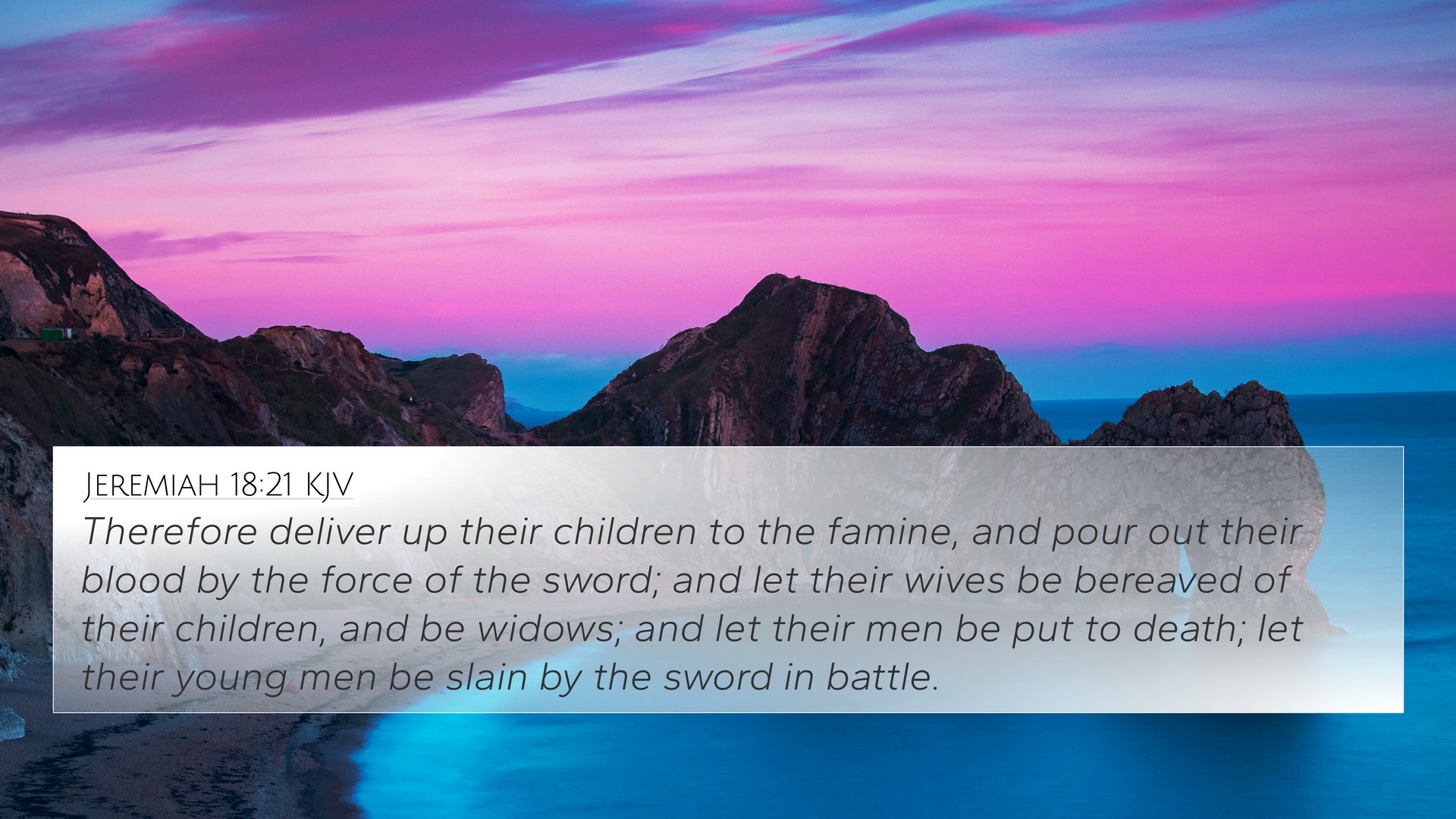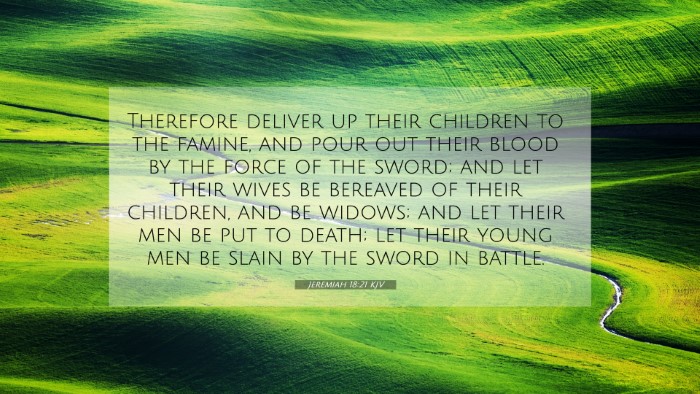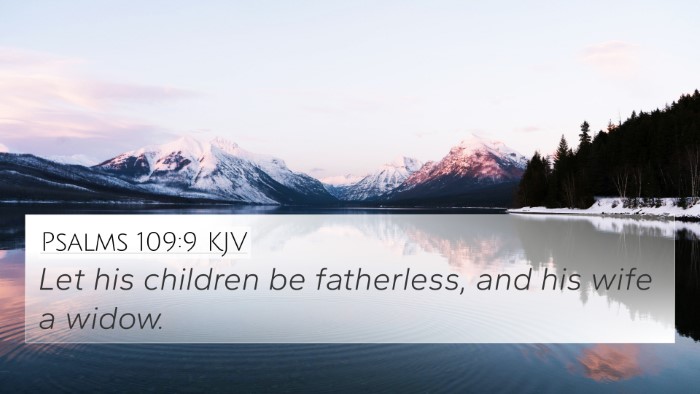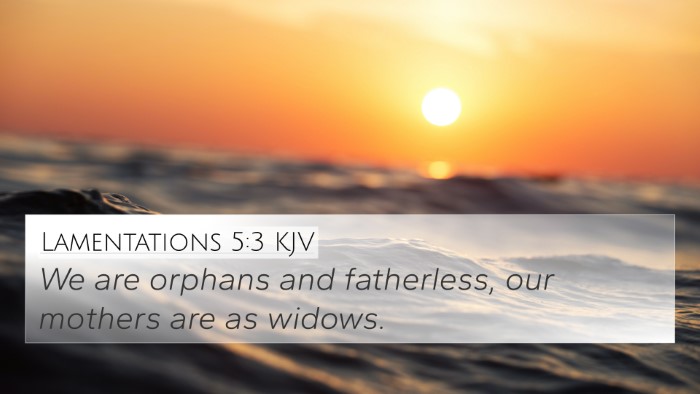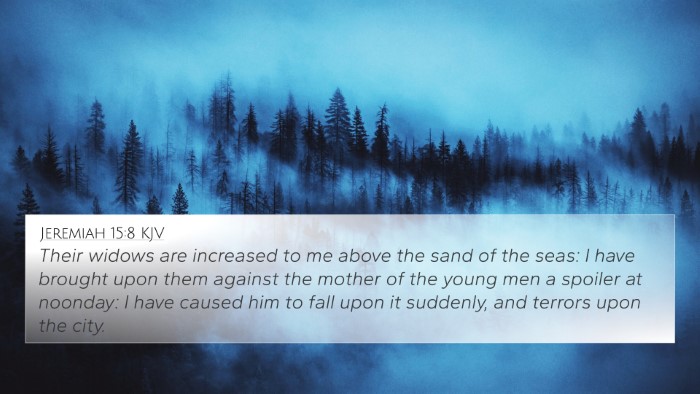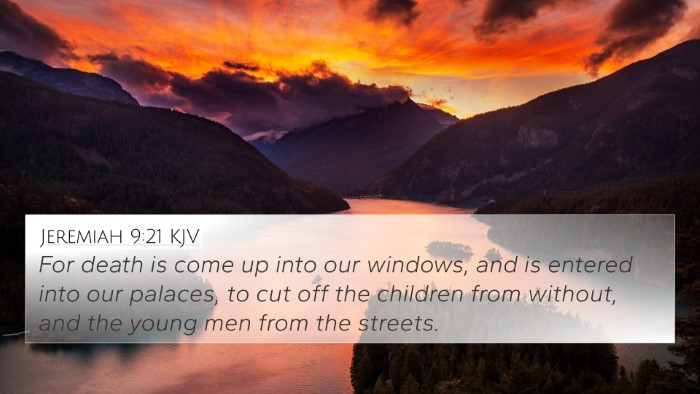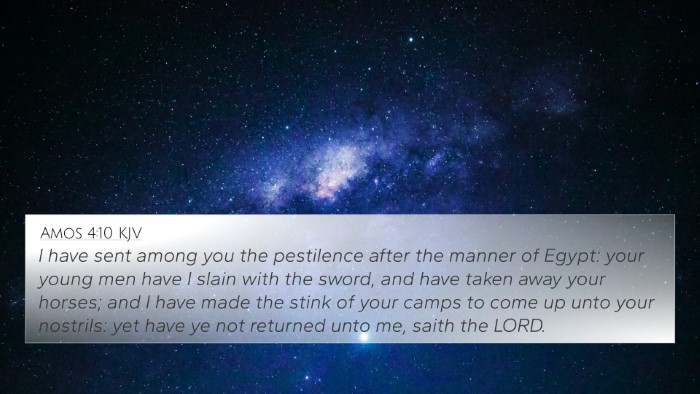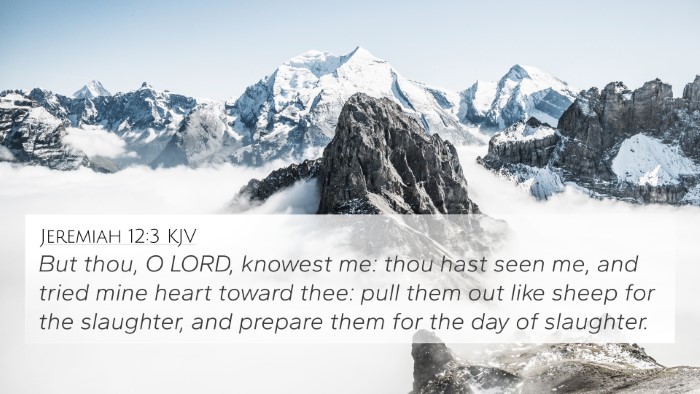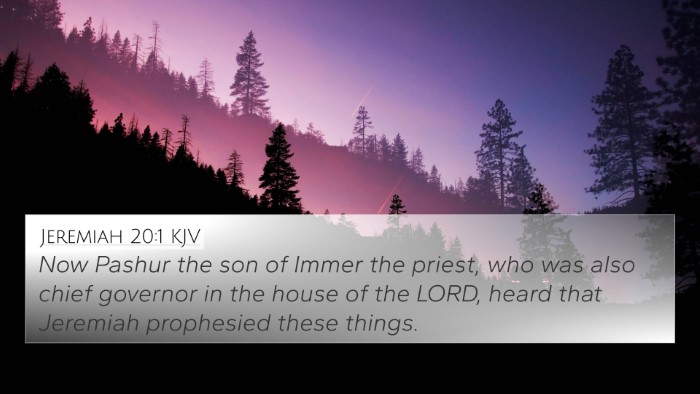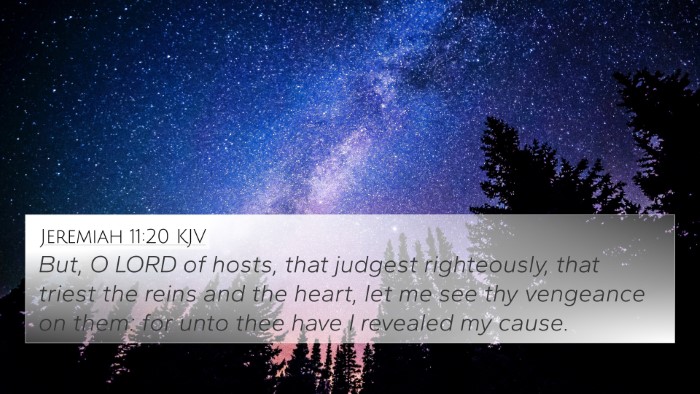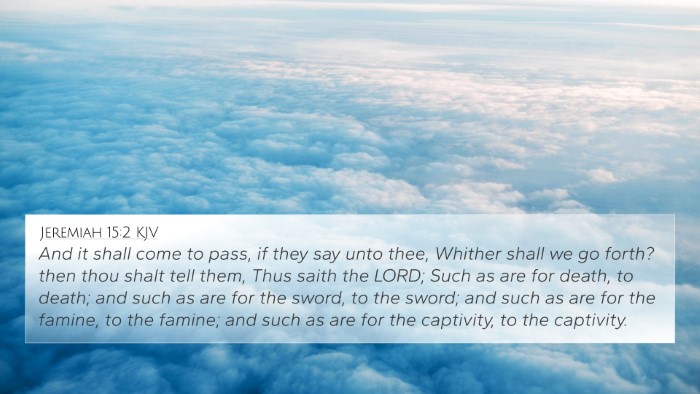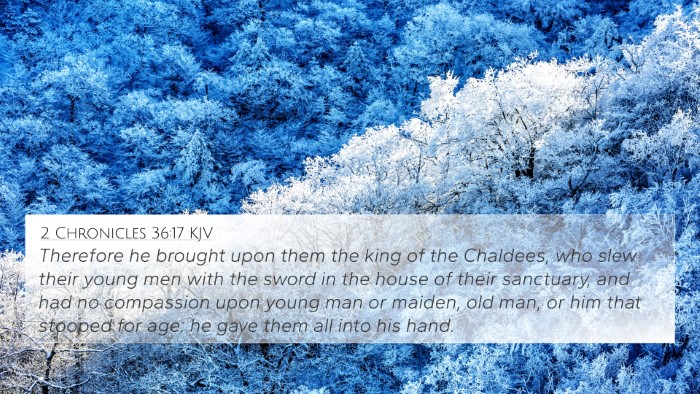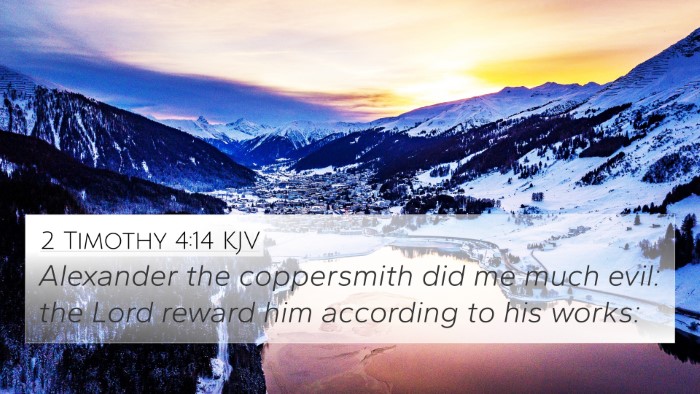Understanding Jeremiah 18:21
Verse: "Therefore deliver up their children to the famine, and pour out their blood by the force of the sword; and let their wives be bereaved of their children, and be widows; and let their men be put to death, let their young men be slain by the sword in battle." - Jeremiah 18:21 (KJV)
Context and Overview
Jeremiah 18:21 falls within a section of Jeremiah's prophecies that includes God's call for repentance and warnings of impending judgment. In this verse, the prophet laments the fate of the people who have turned away from God, expressing profound anguish over the consequences of their actions.
Commentary Insights
-
Matthew Henry's Commentary
Matthew Henry emphasizes the seriousness of divine judgment that results from persistent disobedience. He notes the irony of the people's rebellion against God while still expecting His protection. The severe language used underscores the depth of suffering that comes from abandoning the covenant relationship with God.
-
Albert Barnes' Notes
Albert Barnes explains that Jeremiah's plea for justice reflects the stark outcomes of sin and the consequences that befall a nation that disregards God's commands. Barnes draws attention to the imagery of famine and death, illustrating the total devastation that awaits those who persist in iniquity.
-
Adam Clarke's Commentary
Adam Clarke points out that this passage reflects a national lament rather than individual punishment. He suggests that it captures the essence of the communal impact of sin, which leads to widespread suffering. Clarke also emphasizes the prophetic voice of Jeremiah as he articulates God's judgment and the call to repentance.
Key Themes
This verse presents several significant themes:
- Divine Judgment: A profound warning of the consequences of turning away from God.
- Collective Responsibility: The idea that sin impacts the entire community, not just individuals.
- Consequences of Sin: A reminder that actions have dire repercussions in spiritual and physical realms.
- Call for Repentance: Although judgment is declared, it is indicative of a desperate plea for return to God.
Cross References
This verse can be linked to several other scripture passages that highlight similar themes:
- Deuteronomy 28:15-68 - The blessings and curses tied to obedience and disobedience to God's law.
- Lamentations 2:20 - A cry for God's attention to the suffering of the people, reflecting similar themes of anguish.
- Ezekiel 14:21 - God's judgment upon Jerusalem through famine and pestilence as a warning to the unrepentant.
- Matthew 23:37 - Jesus expresses lamentation over Jerusalem's rejection of God, paralleling Jeremiah's sorrow.
- Romans 1:18-32 - The consequences of idolatry and the rejection of God’s truth.
- Hebrews 10:31 - The gravity of falling into the hands of the living God, emphasizing divine justice.
- 2 Chronicles 36:15-16 - The chronicler describes how God sent messengers to warn the people but they ignored them.
SEO Keywords Discussion
This analysis includes primary, secondary, long-tail, and user intent keywords designed for enhanced visibility in searches related to Holy Scripture:
- Bible verse cross-references
- Connections between Bible verses
- Comparative Bible verse analysis
- Bible verses that relate to each other
- Cross-referencing Biblical texts
- Tools for Bible cross-referencing
- How to use Bible cross-references
Conclusion
Jeremiah 18:21 serves as a poignant reminder of the consequences of deviating from God’s ways. The combined commentary insights from Matthew Henry, Albert Barnes, and Adam Clarke provide a rich tapestry for understanding this complex passage, highlighting the grave implications of sin while also echoing the need for repentance. In studying this verse alongside its cross-references, readers can gain a deeper appreciation of the interconnectedness of Biblical themes.
